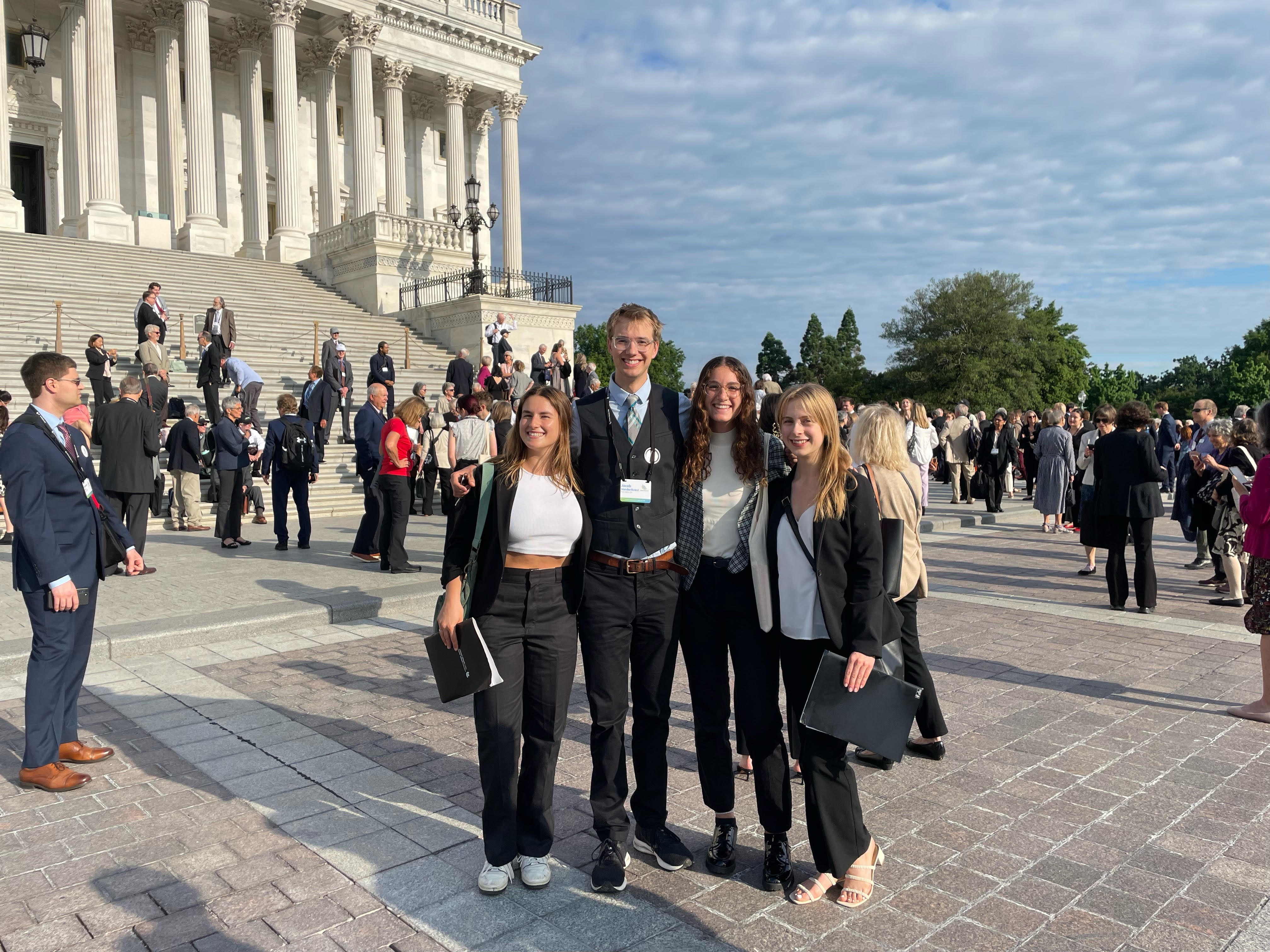Climate Crusader from Santa Barbara Goes to Washington
Students Advocate for Emissions and Energy Bills in Congress

A wildfire in 2020 was a pivotal moment for Analee Josselyn, a senior at Montecito’s Westmont College and a climate change activist. The fire, started by thousands of lightning stikes, destroyed nearly 1,500 buildings and killed one person. Called the CZU Lightning Complex Fire, it reached her hometown in Santa Cruz, and Josselyn said the danger her community faced sparked her interest in climate change advocacy.
When the United Nations Climate Change Conference, COP 28, took place in Dubai last year, Josselyn was there with the Christian Climate Observers, a group that involves Christians in the fight against climate change. She said her experience abroad only intensified her passion.
“I realized, after talking to so many people, and being exposed to what’s going on, that I needed to come back and make a difference,” she said. “My concern for the planet was furthered after learning about the disproportionate impacts of climate on marginalized and vulnerable people.”
Back in Santa Barbara, Josselyn joined the Citizen’s Climate Lobby, CCL, a nonprofit, bipartisan advocacy climate change organization with hundreds of chapters across the U.S. The group focuses on climate advocacy through media and raises climate awareness in the community at a grassroots level.
With funding help from Montecito Rotary, the lobbying group flew Josselyn to Washington, DC, last week. Together with a group of 70 Californians among the 1,000 people who lobbied more than 400 congressional offices, they presented the merits of several different proposals, including initiatives for speeding up energy permitting and habitat restoration. But their main focus was the PROVE IT Act, introduced by Senator Kevin Cramer (R-ND) and Chris Coons (D-DE), who think it has a shot at passing because of it’s bipartisan structure. (PROVE IT is the acronym for the Providing Reliable, Objective, Verifiable Emissions Intensity and Transparency Act.)

The bill is crucial, the lobbyists assert, because the EU introduced a carbon tariff on specific carbon-intensive products last year. Since 2023, the EU member countries have required importers to report the emission of carbon goods, but won’t start charging them for emissions over the limit until 2025, under the rules of CBAM, or the Carbon Border Adjustment Mechanism.
“The bill will provide what’s needed to quantify the climate benefits of the United States’ investments in cleaner, more efficient manufacturing practices and hold nations like China accountable for their emissions-heavy production,” said Coons.
PROVE IT requires the Department of Energy to study U.S. carbon emissions and compare them to other countries in manufacturing goods like aluminum, cement, crude oil, fertilizer, iron, steel, and plastic. The legislators anticipate that these findings will benefit the U.S. as countries increasingly prioritize carbon emissions in their trade considerations.
“The goal is to reduce global emissions, and the answer is to produce more in America,” said Cramer. “Our bipartisan PROVE IT Act acknowledges American excellence while protecting workers and businesses from unfair tariffs and foreign competitors seeking to undercut them.”
The bill has three main goals: measure the carbon intensity of producing certain goods, help the U.S. negotiate with other trading partners, and build on bipartisan momentum to act on global carbon pollution.
Josselyn and the Citizen’s Climate Lobby have support on the bill from the Climate Leadership Council think tank. Daniel Hoenig, a researcher at the council, which looks to market forces and technology to lower greenhouse gas emissions, wrote that China would suffer a bigger blow from the CBAM tariff for two reasons: First, Chinese firms trade much larger volumes of carbon-intensive products than the U.S., and second, the U.S. has much cleaner manufacturing processes and will pay less under a carbon tax.
Hoenig argued that the PROVE IT Act would mark a significant step toward global environmental accountability and cleaner industry practices, though he took a “wait and see” theory on its outcome.

You must be logged in to post a comment.